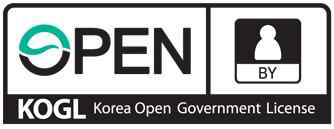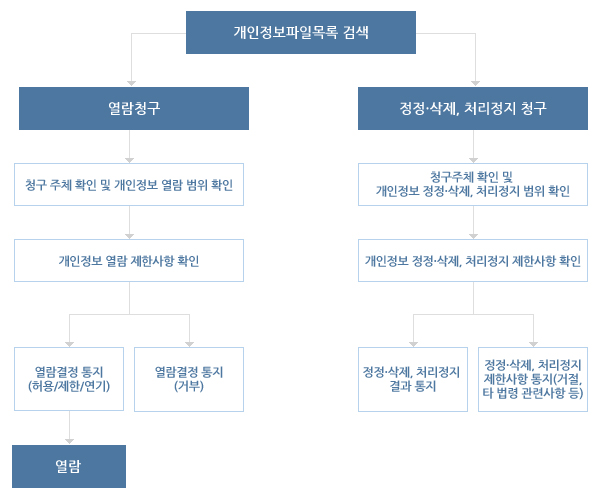Recently Passed Bills
- Bill
- Plenary passes bills including amendment to the Korea Electric Power Corporation Act
- PROPOSITION DATE
- 2022-12-28
- RESOLUTION DATE OF PLENARY SESSION
- 2022-12-28
- Bill
- Plenary passes bills including amendment to the Korea Electric Power Corporation Act
- PROPOSITION DATE
- 2022-12-28
- RESOLUTION DATE OF PLENARY SESSION
- 2022-12-28
Plenary passes bills including amendment to the Korea Electric Power Corporation Act
- Amendment to the Korea Electric Power Corporation Act and the Korea Gas Corporation Act to allow state-run Korea Electric Power Corp. and the Korea Gas Corp. to raise bond issuance ceiling in response to liquidity crisis
- Amendment to the Employment Insurance Act to enable virtual reporting of unemployment in the event of disasters such as Covid-19
The National Assembly passed 31 items on its agenda, including 20 bills, during the 4th plenary meeting of the 401st extraordinary session held on Dec. 28, 2022.
The major bills tabled for consideration are as follows:
<1> Amendment to the Korea Electric Power Corporation Act and the Korea Gas Corporation Act
Presently, the amount of bonds issued and outstanding must not exceed two times the sum of the capital and reserves of Korea Electric Power Corp. (Kepco), and four times the capital and reserves of the Korea Gas Corp. (Kogas). However, both entities have increased their bond issuance to raise funds in response to liquidity woes stemming from recent fuel price increases, thereby raising concerns that they may exceed the limit on the issuance amount.
The amendment will raise the limit on bond issuance volume to five times the sum of the capital and reserves of Kepco and Kogas, and in urgent situations, such as Kepco facing a serious crisis, they will be allowed to issue bonds in an amount up to six times the sum with the permission of the Minister of Trade, Industry and Energy. Such permission shall be promptly reported to the competent standing committee of the National Assembly.
<2> Stalking Prevention and Victims Protection Act to provide adequate protection to stalking victims
Punishment of stalkers has increased since the Act on Punishment of Stalking Crimes took effect last year*. Even so, stalkers have been known to try to gag victims or commit additional crime(s) in retaliation for the crime reports, and there is a heightened need for measures to support victims.
* Act No. 18083, enacted on Apr. 20, 2021 and enforced on Oct. 21, 2021. English translation of the original Korean title is tentative.
The approved bill seeks to enact the Stalking Prevention and Victims Protection Act,* which defines ‘stalking’ to include ‘stalking behavior’ and ‘stalking crime,’ while defining a ‘victim’ as ‘one who directly suffers from stalking.’
* English translation of the original Korean title is tentative.
The Act also prohibits disadvantageous measures toward victims and those who reported the damage, which are specified as ‘disadvantageous measures against a person’s social position,’ ‘unfair personnel measures,’ etc. Those who impose such disadvantageous measures will be punished by imprisonment for up to three years or a fine of up to KRW 30 million.
<3> Amendment to the Employment Insurance Act
The amendment was passed to reflect recent social changes by introducing the virtual unemployment report system, thereby guaranteeing payment to fixed-term or temporary agency workers on a leave of absence following a miscarriage or a stillbirth and clarifying the eligibility requirements for job-seeking benefits.
More specifically, a person will be allowed to apply for job-seeking benefits on the employment information system if they find it difficult to visit an employment security office during a disaster* due to unavoidable reasons prescribed by Ordinance of the Ministry of Employment and Labor. Fixed-term or temporary agency workers whose employment contract period ends during the period of their leave of absence following a miscarriage or a stillbirth will be paid an amount equivalent to payment for the period from the termination date of their employment contract to the expiration date of their leave.
* Both natural disasters such as typhoons, floods, frigid weather, etc. and human-caused disasters such as fires, traffic accidents, infectious diseases, etc., are included.
<4> Amendment to the Act on Support for Persons Eligible for Veteran’s Compensation
Presently, persons of distinguished service to the state, persons of distinguished service to the May 18 Democratization Movement, and their bereaved family members are allowed to receive subsidized assistance in nursing or child-care facilities, but there are no such policies for soldiers, police officers, or public officials wounded in a disaster and their bereaved families.
The objective of the amendment is to also provide assistance in nursing or child-care facilities to soldiers, police officers, and public officials wounded in a disaster and their bereaved family members, in order to promote fair treatment to persons of distinguished service.
<5> Comprehensive Amendment to the Framework Act on Resources Circulation
The approved bill seeks to wholly amend the Framework Act on Resources Circulation to forge a sustainable society within the circular economy with a focus on the efficient use of resources, prevention of waste production, and circular utilization, by changing the title to the Act on the Promotion of Transformation of Society into a Circular Economy*.
* English translation of the original Korean title is tentative.
The comprehensive amendment will define ‘circular economy’ and ‘circular utilization’ and ensure that circular utilization is given priority consideration when wastes are generated. Both state and local governments will bear the responsibility of seeking transformation of society into a circular economy, and the Minister of Environment will need to establish and implement a basic plan for that goal, with mid-, long-term and phased targets based on indicators such as waste reduction rate and circulation rate.
<6> Amendments to the Special Act on the Maintenance of Historical and Cultural Zones and the Special Act on the Establishment of Jeonbuk Special Self-Governing Province
① Amendment to the Special Act on the Maintenance of Historical and Cultural Zones
The amendment is to add Later Baekje, an area where ruins and relics from the Later Baekje period are distributed across Chungbuk, Chungnam, Jeonbuk, Jeonnam, and Gyeongbuk provinces and Gwangju-si, to the list of eight existing historical and cultural zones including the Goguryeo, Baekje, and Silla zones.
② The Special Act on the Establishment of Jeonbuk Special Self-Governing Province
The Special Act will enable the establishment of the Jeonbuk Special Self-Governing Province with the same jurisdictional territory as its preceding local government, Jeollabuk-do; the addition of a separate account to the special accounts for balanced national development under the Special Act on Balanced National Development to allow the government to support the establishment of the new entity; and the establishment of the Support Committee for Jeonbuk Special Self-Governing Province under the Prime Minister’s control, for deliberation of the Province’s mid- to long-term development plans.


